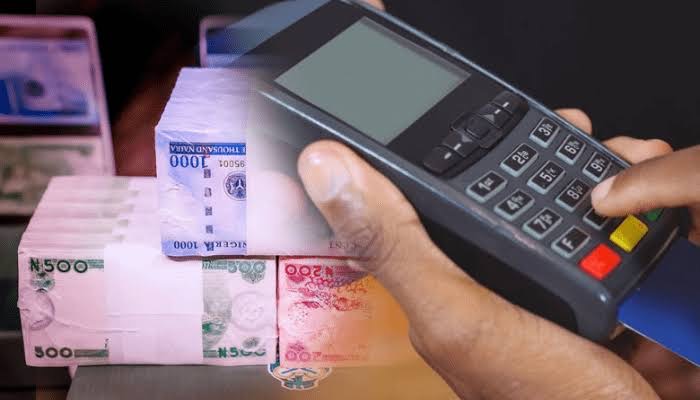In a move that has sparked widespread criticism, the Nigerian government’s implementation of the Electronic Money Transfer Levy (EMTL) has left Point of Sale (POS) operators reeling, with many threatening to increase their charges to stay afloat.
The EMTL, which came into effect on Monday, imposes a N50 levy on transfers of N10,000 and above for fintech account holders, mirroring the charges imposed on Deposit Money Banks (DMBs). However, POS operators argue that this new levy has significantly eaten into their profit margins, which were already thin.

POS attendants typically charge customers N100 for transactions under N5,000 and N200 for transactions of N10,000. However, with the introduction of the EMTL, they may be forced to review these charges upward to maintain their profit margins.
Kingsley Aziha, a POS attendant who uses Palmpay, expressed his displeasure at the new levy, stating that it has affected his earnings. He urged the government to reduce the tariff, hinting that he may increase his charges if the situation persists.

Awele Okafor, another POS operator who uses both Moniepoint and Firstmonie, also lamented the impact of the EMTL on her business. She noted that Moniepoint had already increased its tariff, while Firstmonie was yet to follow suit. She pleaded with the government to reduce the levy, citing the adverse effects it has on small businesses.
However, not all POS operators are affected equally. Ebenezer Adeyi, who uses Opay, praised the platform’s transparent charging system, stating that they do not deduct money arbitrarily.
The Chairman of the National Association of Small and Medium Enterprises (NASME), Prof. Adebayo Adams, condemned the introduction of the EMTL, stating that it would be detrimental to small businesses. He argued that the policy is not masses-friendly, as it effectively doubles the charges imposed on transactions.
As the debate rages on, one thing is clear: the EMTL has significant implications for POS operators and their customers. With many threatening to increase their charges, the government may need to reconsider the levy to avoid further burdening small businesses and the masses.































